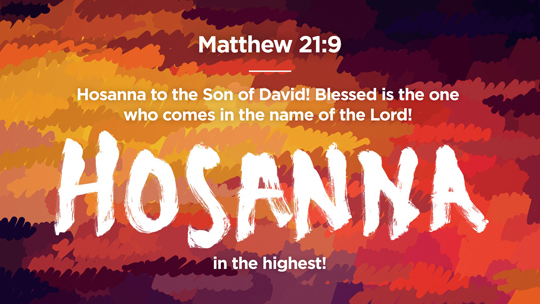
This sermon was preached by Brian Watson on October 6, 2019.
MP3 recording of the sermon.
PDF of the written sermon (or see below).
It’s October 6 today, which means it’s only twenty-five days from Halloween. It also means it’s less than thirteen months away from the next presidential election. Frankly, I’m not sure which one is scarier. On Halloween, we’ll see kids dressed up as all kinds of characters, and we have all kinds of characters running for president.
If you’re like me, you would like to have some different options for who is running for president. Who do you think would be an ideal leader? Some people want a leader who is able to maintain composure under pressure. We’ve had some presidents who have been military leaders, like George Washington and Dwight Eisenhower. Maybe your ideal leader is the most educated, the most intelligent. John Quincy Adams, William Howard Taft, and Woodrow Wilson were professors; Barack Obama was a lecturer. Perhaps you would like an entertaining president. Ronald Reagan was an actor, and Donald Trump was—and still is—a reality show star.
Whatever you think of the presidents we’ve had, they have had different strengths and many different weaknesses. But not one of them could ever compare to Jesus. There has never been a leader like Jesus, and there never will be. He is rightfully called the King of kings and Lord of lords (Rev. 19:16).
We have been studying the life of Jesus for some time by carefully examining the Gospel of Luke, one of four biographies of Jesus that we have in the Bible. Today, as we continue our study, we’re going to see that Jesus is the King who approaches the capital city of Jerusalem. We’re going to see that Jesus has a number of paradoxical properties. Jesus is a King who is in complete control, yet he knows what will happen in Jerusalem—he will be killed because of an angry mob and leaders who refused to take responsibility. We’ll see that Jesus comes not as a typical king, proud and full of himself. And yet he says that he deserves praise, that if people stopped showering him with accolades, even the stones would cry out. Jesus was a King that was prophesied in the Old Testament. Yet when he came to Jerusalem, the people who knew the Old Testament didn’t recognize him. Jesus is a King who was received by some and rejected by many others. And Jesus is a King who prophesies destruction for those who reject him, yet who also weeps over that rejection.
We’ll see all of this and more in today’s passage, Luke 19:28–44. We’ll begin by reading verses 28–40:
28 And when he had said these things, he went on ahead, going up to Jerusalem. 29 When he drew near to Bethphage and Bethany, at the mount that is called Olivet, he sent two of the disciples, 30 saying, “Go into the village in front of you, where on entering you will find a colt tied, on which no one has ever yet sat. Untie it and bring it here. 31 If anyone asks you, ‘Why are you untying it?’ you shall say this: ‘The Lord has need of it.’ ” 32 So those who were sent went away and found it just as he had told them. 33 And as they were untying the colt, its owners said to them, “Why are you untying the colt?” 34 And they said, “The Lord has need of it.” 35 And they brought it to Jesus, and throwing their cloaks on the colt, they set Jesus on it. 36 And as he rode along, they spread their cloaks on the road. 37 As he was drawing near—already on the way down the Mount of Olives—the whole multitude of his disciples began to rejoice and praise God with a loud voice for all the mighty works that they had seen, 38 saying, “Blessed is the King who comes in the name of the Lord! Peace in heaven and glory in the highest!” 39 And some of the Pharisees in the crowd said to him, “Teacher, rebuke your disciples.” 40 He answered, “I tell you, if these were silent, the very stones would cry out.”
Jesus and his disciples have been making their way to Jerusalem for quite some time now. Jesus has told his disciples that he will be killed in Jerusalem (Luke 18:31–33). Yet as he approaches the city, he prepares a royal entrance, fit for a king.
As I said, Jesus is a King who is in complete control. He tells his disciples to do something specific, to arrange for him to ride into Jerusalem on a colt. He knows exactly where the colt is, he tells them what to say to its owners, and the disciples do exactly as he tells them. We should notice that even as Jesus approaches his own betrayal, arrest, and execution, he is in complete control. We have no reason to think that he had somehow secretly arranged for his disciples’ conscription of this colt. So, how does he know where it is and what they should say? Because he’s not just a man; he’s also God. As strange as it is to think about, Jesus has a divine nature and a human nature. That means that he has a divine mind, a mind that is omniscient. He knows all things. He knows what is going to happen to him. He is arranging everything, including his own death. What happens to Jesus is not an accident. He will lay down his life, but he’s no victim. Everything must happen as it does to fulfill God’s plan.
So, Jesus tells two of his disciples to take a colt, a donkey, for him to ride on. In all that we’ve read about Jesus, we have never read that he rode on anything. He has always traveled by foot. So, why does he need to ride on a donkey? Well, there are two reasons. I’ll deal with one right now. His entrance in Jerusalem on a donkey might have reminded some people of events in Old Testament history. When Israel’s great king, David, was dying, there was some political intrigue in his kingdom. One of his sons, Adonijah, claimed that he would be the next king (1 Kgs. 1:5). But David chose his son Solomon to be the next king (1 Kgs. 1:28–30). David ordered that Solomon should ride into Jerusalem on his own mule and be anointed as the next king (1 Kgs. 1:32–35). And that is what happened, and when Solomon was proclaimed the next king of Israel, the people rejoiced (1 Kgs. 1:38–40). Also, the fact that people here spread their cloaks on the ground, giving Jesus something like the red-carpet treatment, is reminiscent of when another king of Israel, Jehu, was anointed (2 Kgs. 9:13).
Jesus, like Solomon, rides not a war horse or a chariot, but a more humble animal, a donkey. As in the case of Jehu, people spread their garments before him. And a large group of disciples praise God for the mighty works he has done through Jesus, and they quote Psalm 118:26. The original says, “Blessed is he who comes in the name of the Lord.” But here, the disciples say, “Blessed is the King who comes in the name of the Lord.” They make it clear that Jesus is the King of Israel. That Psalm was one of several that was sung at Passover, the feast that remembered God’s great salvation of Israel when they were in Egypt. The Psalm is all about God saving his people: “The Lord is my strength and my song; he has become my salvation” (Ps. 118:14). “I thank you that you have answered me and have become my salvation” (Ps. 118:21). “Save us, we pray, O Lord! O Lord, we pray, give us success!” (Ps. 118:25). The people realize that God has come in the person of Jesus. “The Lord is God, and he has made his light to shine upon us” (Ps. 118:27).
That same Psalm says this:
8 It is better to take refuge in the Lord
than to trust in man.
9 It is better to take refuge in the Lord
than to trust in princes (Ps. 118:8–9).
The disciples realize that Jesus is no mere man, no ordinary king. He is the Prince of Peace (Isa. 9:6–7), the one who has come to reconcile rebellious sinners to their Maker. He is the one you can put your trust in. And we’ll see why we can trust him as we continue to look at this passage.
Part of the reason why Jesus is trustworthy is that he isn’t like a typical king. He doesn’t come on a war horse, or on a chariot, with a great show of power. He’s riding a donkey, accompanied by a rag-tag group of ex-fisherman and other oddballs. Jesus could have arrived in a chariot of gold. He could have ridden into Jerusalem with a great army. But he didn’t. He’s a humble king, born in humble circumstances, living in a small town and working as a carpenter. Imagine how a political leader travels today: in a private plane, and in armored, black SUVs, with bodyguards. Jesus comes into Jerusalem in a minivan with a bunch of nobodies.
But even though Jesus is humble, and doesn’t show off, he knows who he is. He’s not falsely humble or modest. He’s self-assured. When his disciples call him the King, some Pharisees, an important group of religious leaders, tell Jesus to rebuke his disciples. They want him to correct them. But Jesus doesn’t. He knows that he’s the King. He knows that he is worthy of praise. He says that if the disciples were quiet, even the stones would cry out. If no humans praised the Son of God, then creation itself would cry out. Jesus’ humility and his self-confidence seem to be paradoxical, but truly great people don’t need to show off or draw attention to themselves.
Here’s another thing that is paradoxical about Jesus: He was the King that the Old Testament promised would come, but many didn’t recognize him. There are many prophecies in the Old Testament that are fulfilled by Jesus. Here, Jesus fulfills perhaps two prophecies. Both come from the prophet Zechariah. The more obvious passage is Zechariah 9:9:
9 Rejoice greatly, O daughter of Zion!
Shout aloud, O daughter of Jerusalem!
Behold, your king is coming to you;
righteous and having salvation is he,
humble and mounted on a donkey,
on a colt, the foal of a donkey.
It seems that Jesus ordered the disciples to get a colt for him to ride so that he could fulfill this prophecy. Jesus is the righteous king who comes to bring salvation. The very next verse in Zechariah says that this king will bring weapons of war to an end, and that he will “speak peace to the nations” and rule “from sea to sea.” Jesus didn’t bring an end to all wars the first time he came, but he did come to bring peace to those who had been enemies of God. And his rule does extend to the whole world, even though many people don’t recognize that he is the true King.
Another passage in Zechariah, this time in chapter 14, speaks of a day when the Lord will come to Jerusalem to fight for his people. It says, “On that day his feet shall stand on the Mount of Olives that lies before Jerusalem on the east, and the Mount of Olives shall be split in two from east to west by a very wide valley, so that one half of the Mount shall move northward, and the other half southward” (Zech. 14:4). When Jesus came to Jerusalem, he came from the Mount of Olives, and I don’t think that’s an accident. When Jesus came, obviously the mountain wasn’t split in two. But the language of the prophets isn’t always literal. It’s often symbolic. The idea of the mountain being split in two is that a path has been opened, and it’s an earth-shattering event. Jesus will later be in the Mount of Olives on the night before he is died. It is where he will be arrested. Jesus knew he had to die. He knew he had to face God’s righteous judgment against sin. He had to drink the cup of God’s wrath, poured out against those who destroy his creation, who rebel against him. Jesus’ grief at that moment is so great at that moment, that “his sweat became like great drops of blood falling down to the ground” (Luke 22:44). We might say that Jesus was being split into two as the moment of his sacrifice was approaching.
The prophet Zechariah says, at the end of chapter 14, that all of Jerusalem will be made holy. It ends with this comment: “there shall no longer be a trader in the house of the Lord of hosts on that day” (Zech. 14:21). Jesus will soon go to the house of the Lord, the temple in Jerusalem, and he will cleanse it of traders (Luke 19:45–46). In time, Jesus will replace the temple. There will no longer be a need to offer up animal sacrifices for sin, which couldn’t really pay for the sins of human beings anyway. Jesus himself will be the true sacrifice, the only one need to pay for all the sins of his people, and he will offer himself up on the altar of the cross. All who put their trust in Jesus, instead of putting their trust in themselves or politicians or in anything else, have all their sins removed, wiped out, completely forgiven, and they have access to God. Christians don’t need to go to a special place in order to pray or worship. We do need to come together to worship, to encourage one another, but we don’t need to make a pilgrimage to a holy city. We already have access to the city of God, wherever we are. What Jesus did was earth-shattering.
So, Jesus fulfills prophecy. The Jewish people should have seen this. There are so many ways that Jesus fulfills the promises of the Hebrew Bible, our Old Testament. He is the one born in Bethlehem (Mic. 5:2), the son of a virgin (Isa. 7:14), the one of the tribe of Judah who has a donkey’s colt (Gen. 49:10–11), the son of David anointed by the Holy Spirit (Isa. 11:1–2), the suffering servant who “was despised and rejected by men” (Isa. 53:3—see Isa. 52:13–53:12). Yet so many of the Jewish people who knew the Scriptures best didn’t recognize Jesus. The Pharisees, who took the Old Testament very seriously, couldn’t connect the dots of Scripture to Jesus. They had eyes that couldn’t see the truth when it was standing right in front of them. And nothing has really changed. So many people today can’t see who Jesus is, even when all the evidence points to his true identity.
And this leads us to the next several verses in Luke. Jesus knew he would be rejected, and he knew that judgment would come to those who reject God’s anointed King. Yet the same King who promises judgment also weeps over the fact that judgment is coming. Let’s read Luke 19:41–44:
41 And when he drew near and saw the city, he wept over it, 42 saying, “Would that you, even you, had known on this day the things that make for peace! But now they are hidden from your eyes. 43 For the days will come upon you, when your enemies will set up a barricade around you and surround you and hem you in on every side 44 and tear you down to the ground, you and your children within you. And they will not leave one stone upon another in you, because you did not know the time of your visitation.”
Jesus is a King who was gladly received by some but who was rejected by many others. Jesus is a King who prophesies destruction for those who reject him. This is something he has done several times in this Gospel. If you read any of the Gospels, this becomes very clear. Those who reject Jesus reject God. You cannot have a right relationship with God without having a right relationship with Jesus. Those who reject Jesus will be condemned for their sin. There is no forgiveness for them.
Yet Jesus isn’t just a tough preacher of hell. Jesus also also weeps over the fact that people reject him. It’s amazing to think that the eternal Son of God, who is all powerful, would weep about anything. But this shows us that God has emotions. He is not cold and impersonal. And even though his eternal plan includes the condemnation of many, it’s not because he doesn’t care.
I want to point out something here in case we come to a wrong conclusion about why Jesus is weeping. Some people would say that Jesus is sobbing because he can’t make people love him, as if he were an unrequited lover. Jesus desperately wants people to believe in him, but he can’t violate their free will, and they don’t believe in him, so he’s really sad. That’s what some people think. But that’s not the case. And the reason we know that is because of what the whole Bible says. For reasons that aren’t entirely clear, God has predestined some to salvation, which means all others will be condemned. And God crafted a plan that, for reasons that only he knows fully, includes sin, and all the works of Jesus, including his becoming human and dying on the cross and, later, rising from the grave. And all of this brings God glory. But even in this passage, we see that this is God’s plan. Jesus says, “Would that you, even you, had known on this day the things that make for peace! But now they are hidden from your eyes.” The unbelieving Jews should have seen that Jesus came to do “things that make for peace.” But they couldn’t see those things. Why? Because “now they are hidden from your eyes.” Who hid these things from their eyes? When the passive voice is used this way in the Bible, it means that the actor is God. Why God would do this is something of a mystery. But all of this is part of God’s plan. And yet Jesus weeps.
This is all very similar to what happens when Jesus raises his friend Lazarus from the grave (John 11). Jesus knew that Lazarus was going to die. He says that this is all part of God’s plan to glorify himself (John 11:4). Lazarus had to die so that Jesus could raise him. Jesus knew all of this. Yet when Lazarus died, and his sisters were mourning, Jesus wept (John 11:35). And then Jesus rose Lazarus back to life (John 11:38–45). The Son of God, who is in complete control, weeps that some things must happen.
Jesus is like the prophet Jeremiah. (We’ve been studying Jeremiah on Sunday evenings, and you all are welcome to join us.) Jeremiah was given the difficult task of prophesying to Judah shortly before Judah was destroyed by the Babylonian empire. That destruction came because the people didn’t believe in God. They didn’t respond rightly to his words. Instead of trusting in God, they trusted in the words of false prophets, other messages that said things they wanted to hear. They worshiped false gods, gods they could manipulate. Jeremiah was told he would “pluck up” and “break down,” he would “destroy” and “overthrow,” he would “build” and “plant” (Jer. 1:10). And Jeremiah spoke God’s words to unbelieving people. Like Jesus, he promised destruction to those who didn’t trust God. Like Jesus, he wept (Jer. 9:1; 13:17; 14:17). And, like Jesus, Jeremiah prophesied the destruction of Jerusalem and its temple.
Here in Luke, Jesus says that enemies will come to Jerusalem and set up barricades to surround the city on every side. These enemies will destroy the people, the city, and the temple. Why? “Because you did not know the time of your visitation.” That means that they didn’t know that God had visited them in the person of Jesus. They didn’t know that Jesus was a man of God. They didn’t realize that Jesus is God.
What Jesus says here comes to pass forty years later. Because the Jewish people will rebel against the Roman Empire, the Romans will retaliate. They will surround the walled city of Jerusalem. And they will then destroy the city and its temple, killing many people in the process. This finally happened in the year 70. This destruction came because of the people’s rejection of Jesus, which was a rejection of God. And the stones of the temple were destroyed because the temple was no longer needed. The true temple, where God meets with his people, where people pray to God, and where sacrifices were offered to God, is Jesus’ body. And Jesus’ body on Earth is the church.
Jesus didn’t just come to tear down and to destroy. He also came to build up. He came to build the kingdom of God on Earth. To build a kingdom, you need citizens of that kingdom. In order for people to become citizens of the kingdom of God, they need to come under God’s rule. But the human condition is that we don’t want that. We don’t want God to be our ultimate authority. We like calling on God when we’re in trouble, but we don’t want God’s words to dictate how we live. That was true of the first human beings. Because they didn’t love God and trust him, they rejected his words. And because of that, God rejected them. He removed them from his special presence, from paradise, where there was no evil and no death. And ever since, humanity has been living in a wilderness, struggling with all kinds of evil, and dying. To get back into God’s good graces, we need someone who provides a way back.
We need someone who will take the punishment for our sin that we deserve so that we can be forgiven. We need someone to be exiled so that we can go back home. To be built up as God’s people, we need our sin to be torn down and destroyed. How can God destroy sin without destroying us?
The answer is Jesus. As a human, he can sacrifice his life for other humans, paying their penalty in full. As the God-man, he is infinite, and can pay not just for one person’s sins, but for the sins of the world. Jesus’ disciples quoted part of Psalm 118, the part that says, “Blessed is he who comes in the name of the Lord.” Earlier in that Psalm, it says,
22 The stone that the builders rejected
has become the cornerstone.
23 This is the Lord’s doing;
it is marvelous in our eyes.
24 This is the day that the Lord has made;
let us rejoice and be glad in it (Ps. 118:22–24).
Jesus is the stone rejected by humans, but who becomes the cornerstone of a new temple. Jesus said that if the Jews didn’t praise him, the rocks would. Earlier, John the Baptist said that “God is able from these stones to raise up children for Abraham” (Luke 3:8). In other words, God can make his people out of nothing. It doesn’t matter where you were born, who your parents were, how much sin you’ve committed. What matters is if God takes you and brings you to faith. And if he does that, you have a place in God’s kingdom. In fact, you are a living stone who is part of the true temple of God.
Consider what the apostle Peter writes in 1 Peter 2:4–5:
4 As you come to him, a living stone rejected by men but in the sight of God chosen and precious, 5 you yourselves like living stones are being built up as a spiritual house, to be a holy priesthood, to offer spiritual sacrifices acceptable to God through Jesus Christ.
Why does John the Baptist say that God can make rocks into his people? Why does Jesus say that the stones would cry out? Perhaps they had in mind what Peter would write later. God takes people like us, nobodies, and makes them into his people. God takes people like us, undeserving, not particularly powerful or smart or even lovable, and uses us to make his temple. And if we’re part of God’s people, we are a holy priesthood. We’re priests of the King! We don’t have to offer up sacrifices for our sin. That sacrifice was offered when Jesus died on the cross. But we offer up spiritual sacrifices of praise and of doing good works (Heb. 13:15–16). We offer up our very lives as living sacrifices to God (Rom. 12:1). Or, as Peter says a few verses later, God’s people have been rescued from sin and condemnation so “that you may proclaim the excellencies of him who called you out of darkness into his marvelous light” (1 Pet. 2:9). We are supposed to “abstain from the passions of the flesh,” from our sinful urges. We are supposed to “Keep [our] conduct . . . honorable,” so that when other people see us, “they may see [our] good deeds and glorify God on the day of visitation” (1 Pet. 2:10–11), that day when Jesus comes again in glory.
The question for us today is, Which king are we following? We will follow some authority. We will put our trust in the “princes” of politics or in ourselves, or perhaps in our money or entertainment or in our spouses or other loved ones. But they will all fail us. The one who never fails is Jesus. There has never been a king like him, one who is in complete control yet who would lay down his life, one who is humble yet perfectly self-assured, one who speaks tough words but who also weeps. “Blessed is the King” and blessed are those who come under his authority.
If you are not a Christian, I strongly urge you to consider the claims of Christ Jesus. Do not reject him. No politician will die for you. And they’re certainly not in complete control. No other person can remove your sins and bring you to peace with God. No one else and nothing else will give you eternal life, in a restored world where there is no suffering and no death—that’s another promise that Jesus makes. If you don’t know a lot about Jesus or if you have questions, please talk to me. I would love to help you know more about Jesus. If you are ready to follow Jesus but don’t know how or what that would look like in your life, I would love to help you get started.
If you are a Christian, live like Jesus is your King. Praise him. Don’t be afraid of what others say, the ones who reject Jesus. Some of them may come to “glorify God on the day of visitation.” And let us imitate Jesus as far as we are able. We aren’t in complete control. We aren’t the rulers of the universe. We can’t pay for the sins of others. But we can be humble and do God’s will. We can be tough-minded and tender-hearted, speaking truth with tears in our eyes to people who may not listen. Let us tell others about our King. Perhaps one way to start a conversation with people is to ask who or what they put their trust in. Ask people who their ultimate authority is. They may never have thought about that before. Then tell them about who your ultimate authority is.
“Blessed is the King” and blessed are his people. May the Lord bless us.
Notes
 Welcome and Announcements
Welcome and Announcements



